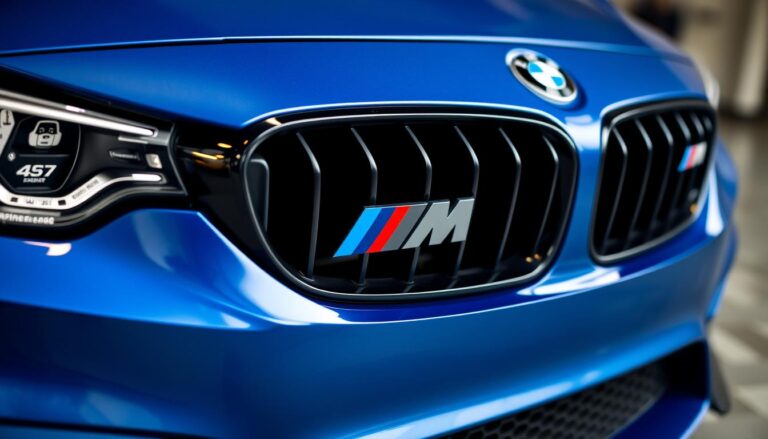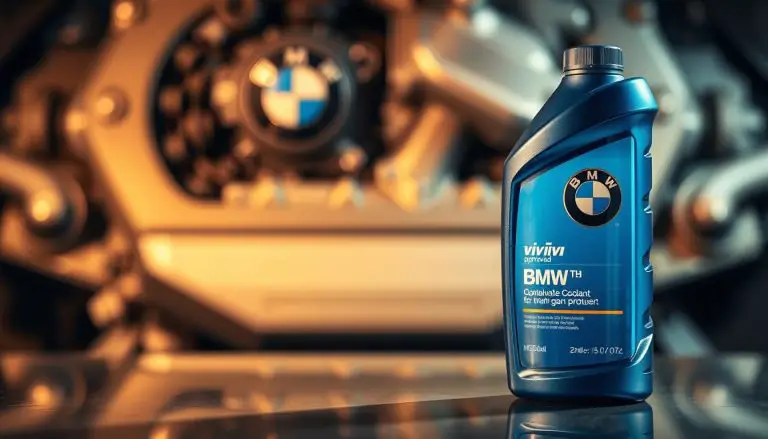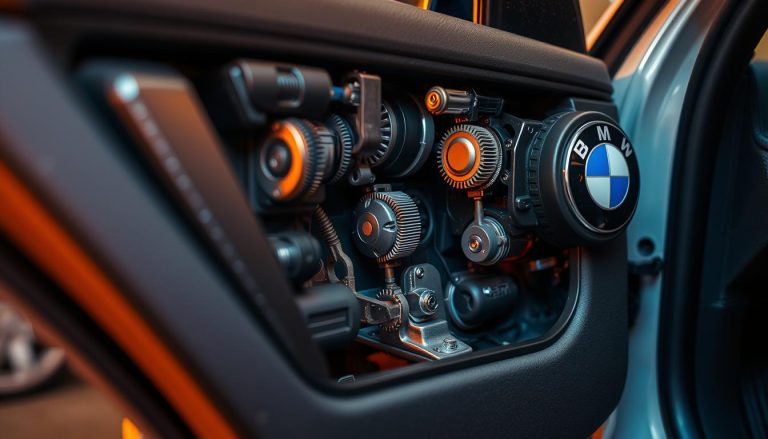As a BMW owner, you’ve invested in a precision-engineered vehicle known for performance and luxury. One common question that arises is whether premium fuel is truly necessary or just an optional expense. This comprehensive guide will help you understand BMW’s fuel requirements, the science behind octane ratings, and how your fuel choices affect your vehicle’s performance, longevity, and warranty.
BMW’s Official Fuel Recommendations
BMW is quite clear in their official stance on fuel requirements. According to BMW’s owner manuals and official documentation, all BMW gasoline engines are designed to run on premium unleaded fuel with an octane rating of 91 or higher (93 octane is recommended in the United States).
This recommendation isn’t arbitrary. BMW engines, particularly those in performance models, typically feature high compression ratios and advanced timing systems that are optimized for higher-octane fuel. The company explicitly states that using fuel with a lower octane rating than recommended may reduce engine performance and fuel economy.
However, BMW also acknowledges that most modern vehicles have knock sensors and engine management systems that can adjust to lower octane fuel if necessary, though not without some compromises in performance and efficiency.
Premium vs. Regular Gasoline: Understanding the Difference

What Are Octane Ratings?
The octane rating you see at the pump (87, 89, 91, 93) is a measure of a fuel’s ability to resist “knocking” or “pinging” during combustion. These sounds occur when fuel ignites prematurely in the engine’s cylinders, before the spark plug fires.
| Fuel Type | Octane Rating | Best For |
| Regular Unleaded | 87 | Economy cars, most non-luxury vehicles |
| Mid-grade Unleaded | 89-90 | Older luxury vehicles, some light performance cars |
| Premium Unleaded | 91-93 | Luxury vehicles, performance cars, turbocharged engines |
Performance Differences
Higher octane fuel doesn’t contain more energy than regular gas, contrary to popular belief. The difference lies in how it burns. Premium fuel allows for:
- More advanced ignition timing
- Higher compression ratios
- Optimal performance in turbocharged or high-compression engines
- Better fuel efficiency under high-load conditions
- Reduced risk of engine knock

Potential Consequences of Using Lower Octane Fuel
Engine Knocking and Performance Issues
The most immediate consequence of using lower octane fuel in a BMW designed for premium gas is engine knock. Modern BMWs have knock sensors that detect this condition and adjust timing to prevent damage, but this adjustment comes at a cost:
What Knock Sensors Protect
- Prevents serious engine damage
- Adjusts timing automatically
- Allows engine to run on lower octane in a pinch
- Maintains basic drivability
What You Still Lose
- Reduced horsepower (5-20% loss)
- Decreased acceleration
- Lower fuel efficiency
- Potential long-term wear issues
- Rougher engine operation
Long-term Effects
While occasional use of regular gas won’t immediately damage your BMW, consistent use of lower octane fuel than recommended can lead to:

- Carbon buildup on valves and injectors
- Reduced fuel system efficiency
- Potential increased wear on engine components
- Higher maintenance costs over time
Warranty Implications
Using regular gas when premium is specified can potentially affect your warranty coverage. While BMW cannot void your entire warranty simply for using regular fuel, they can deny claims for fuel-related damage if they can prove the damage was caused by using improper fuel.
“If using a lower octane fuel than recommended results in engine damage, repairs may not be covered under the vehicle’s warranty.”
BMW Models That Absolutely Require Premium Fuel

While BMW recommends premium fuel for all their gasoline models, certain high-performance variants are particularly sensitive to fuel octane. Using regular gas in these models will result in more significant performance losses and potential issues:
M Series Models
- M2
- M3
- M4
- M5
- M8
- X3 M
- X5 M
- X6 M
Turbocharged Models
- 330i/340i
- 540i
- 740i/750i
- X3 M40i
- X5 xDrive40i/50i
- Z4 sDrive30i/M40i
High-Compression Models
- Any model with “Competition” package
- M Performance variants
- Vehicles with the B58 inline-6 engine
- Models with the S58 engine

These high-performance models feature engines with compression ratios often exceeding 10:1, sophisticated turbocharging systems, and precisely calibrated engine management systems that are specifically designed to take advantage of premium fuel’s knock resistance.
Real-World Owner Experiences and Expert Recommendations

What BMW Mechanics Say
Professional BMW technicians consistently recommend following the manufacturer’s fuel guidelines. According to certified BMW mechanics, the most common fuel-related issues they see include:
- Reduced performance complaints from owners using regular gas
- Carbon buildup requiring more frequent cleaning
- Check engine lights triggered by knock sensor adjustments
- Fuel system issues in older models consistently run on lower octane
“In my 15 years servicing BMWs, I’ve seen the difference premium fuel makes, especially in turbocharged models. While modern BMWs can adjust to regular gas, they simply don’t run as well or as efficiently. The performance difference is noticeable, and over time, the maintenance savings from using the correct fuel often outweigh the added cost at the pump.”
Owner Testimonials

“I experimented with regular gas in my 330i for a month. The car ran, but I noticed immediately reduced acceleration and my fuel economy actually dropped by about 2 MPG. When I calculated the costs, I was actually spending more on regular gas because I needed more of it. I’ve gone back to premium.”
— Michael T., BMW 330i Owner

“I’ve owned my X5 for five years and always used premium as recommended. On a road trip, I had to use regular gas when premium wasn’t available. The difference was noticeable – rougher idle, hesitation during acceleration, and the engine just sounded different. I went back to premium at the next stop.”
— Sarah K., BMW X5 Owner

“With my M3, there’s absolutely no question – it needs premium fuel. I tried regular once just to see what would happen and the performance drop was dramatic. The car felt sluggish, the engine note changed, and I even got a check engine light. Never again.”
— Alex R., BMW M3 Enthusiast
Frequently Asked Questions About BMW Fuel Requirements
What is the minimum octane rating recommended for BMWs?
BMW recommends a minimum octane rating of 91 for all their gasoline vehicles in the United States (95 RON in Europe). For M models and performance variants, 93 octane is strongly recommended when available. Using fuel below 91 octane will cause the engine management system to adjust timing and performance parameters, resulting in reduced power and efficiency.
Can I use regular gas in my BMW in an emergency?
Yes, modern BMWs have knock sensors that will adjust engine timing to prevent damage if you need to use regular gas in an emergency. However, you’ll experience reduced performance and potentially lower fuel economy. This should be considered a temporary solution only, and you should return to using premium fuel as soon as possible, especially for high-performance models.
Are BMW engines compatible with ethanol blends?
BMW engines are designed to run on gasoline with up to 10% ethanol content (E10), which is common in most premium and regular fuels in the US. Higher ethanol blends like E15 or E85 are not recommended unless specifically stated in your owner’s manual. Ethanol contains less energy than gasoline, so higher ethanol blends can further reduce fuel economy and performance.
Is the cost of premium gas worth it for BMW owners?
When analyzing the cost difference between premium and regular gas for BMW owners, several factors come into play:
| Consideration | Premium Gas | Regular Gas | ||||||||||||||||||
| Annual Fuel Cost (15,000 miles) | ,250 (.50/gal × 500 gal) | Frequently Asked Questions About BMW Fuel RequirementsWhat is the minimum octane rating recommended for BMWs?BMW recommends a minimum octane rating of 91 for all their gasoline vehicles in the United States (95 RON in Europe). For M models and performance variants, 93 octane is strongly recommended when available. Using fuel below 91 octane will cause the engine management system to adjust timing and performance parameters, resulting in reduced power and efficiency. Can I use regular gas in my BMW in an emergency?Yes, modern BMWs have knock sensors that will adjust engine timing to prevent damage if you need to use regular gas in an emergency. However, you’ll experience reduced performance and potentially lower fuel economy. This should be considered a temporary solution only, and you should return to using premium fuel as soon as possible, especially for high-performance models. Are BMW engines compatible with ethanol blends?BMW engines are designed to run on gasoline with up to 10% ethanol content (E10), which is common in most premium and regular fuels in the US. Higher ethanol blends like E15 or E85 are not recommended unless specifically stated in your owner’s manual. Ethanol contains less energy than gasoline, so higher ethanol blends can further reduce fuel economy and performance. Is the cost of premium gas worth it for BMW owners?When analyzing the cost difference between premium and regular gas for BMW owners, several factors come into play:
While premium gas costs approximately $300 more annually in this example, the improved fuel efficiency, full performance, and potential maintenance savings often offset this difference, especially for higher-performance BMW models. ,950 (.90/gal × 500 gal) | ||||||||||||||||||
| Fuel Efficiency | Optimal (25 MPG avg) | Reduced (23 MPG avg) | ||||||||||||||||||
| Engine Performance | Full power as designed | 5-20% power reduction | ||||||||||||||||||
| Long-term Maintenance | Standard maintenance schedule | Potentially increased maintenance | ||||||||||||||||||
| Resale Value Impact | None | Possible negative impact |
While premium gas costs approximately 0 more annually in this example, the improved fuel efficiency, full performance, and potential maintenance savings often offset this difference, especially for higher-performance BMW models.
Actionable Recommendations for BMW Owners

For Daily Driving
- Use premium fuel (91-93 octane) as recommended by BMW for optimal performance and efficiency
- If cost is a concern, consider non-premium gas stations that offer competitive premium fuel prices
- Join fuel rewards programs to offset the premium fuel cost difference
- Maintain proper tire pressure and regular maintenance to maximize fuel efficiency
For Performance Driving
- Always use the highest octane available (93 octane when possible) for track days or spirited driving
- Consider premium fuel from top-tier gas stations for the cleanest burn and best performance
- Monitor performance closely if you ever need to use lower octane in an emergency
For Older BMW Models
- Older BMWs (pre-2000) may be more sensitive to fuel quality due to less sophisticated knock sensors
- Consider occasional fuel system cleaners if using anything less than premium
- Be particularly vigilant about using premium fuel in older M models
Remember: While modern BMWs can adjust to lower octane fuel, they’re engineered and tuned specifically for premium gasoline. The modest savings from using regular gas are often offset by reduced performance, lower fuel economy, and potential long-term maintenance issues.
Conclusion: Making the Right Fuel Choice for Your BMW
BMW’s recommendation for premium fuel isn’t just a luxury suggestion—it’s based on the specific engineering requirements of their performance-oriented engines. While modern BMWs have technology to adapt to lower octane fuel when necessary, consistently using premium gas as recommended will ensure you experience the performance, efficiency, and longevity that BMW engineered into your vehicle.
The decision ultimately comes down to your priorities as an owner. If you value the full performance potential of your BMW and want to protect your investment over the long term, premium fuel is the clear choice. The additional cost at the pump is often offset by better fuel economy, reduced maintenance issues, and the satisfaction of experiencing your BMW performing exactly as its engineers intended.
Get Your Free BMW Maintenance Guide
Want to ensure your BMW performs at its best for years to come? Download our comprehensive BMW Maintenance Guide, which includes detailed fuel recommendations, maintenance schedules, and expert tips specifically for your model.


